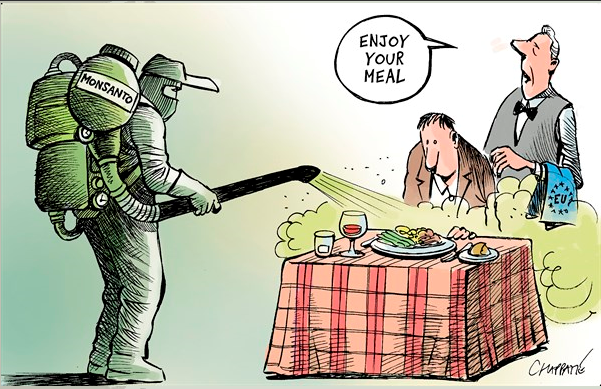During our October 7th Class on Agricultural Bio-tech, we were asked to post an Extra Credit assignment to the blog on Mark LYNAS and his apology at the January 3, 2013 Oxford Farming Conference for condemning GMO’s. We were asked to reflect upon his amendment of earlier statements condemning the technology after reviewing and valuing the scientific findings for the methods over his personal opinions.
A self-professed environmentalist, Mr. LYNAS originally condemned the use of the technology in 1995. He reacted to the technology based on fears that were perpetuated by non-government organizations and special interest groups to ban the technology and it’s use across the globe.
He then found that his very anti-scientific message on GMOs clashed with his pro-climate change stance establish in 2008, where he became an expert on the topic by reviewing peer-reviewed research and gathering his own data and imagery. He found he was being hypocritical however, as he lectured others on their dismissal of a phenomenon he knew to be true through extensive scientific investigation, he was also dismissing the science of GMOs in favor of propaganda and fearmongering.
He sat down to do some reading and found GMOs decreased the use of inputs like pesticides to farmers, saving them money, and that countries were clamoring for GMO seeds to increase their productivity and profits. He also found to his surprise that gene flow, or the mixing of genes between species, occurs as part of natural processes all the time.
By 2050, the global population is projected to reach 9.5 billion that’s to decreasing infant mortality and increasing infertility rates. The amount of food produced today will need to increase over 100% to meet the growing demand for food, especially in developing countries. Growing environmental challenges include preserving biodiversity and growing more with less water, land and land conversion. Population grown is not a new concern, but scientists like Norman BORLAUG decided that biotech should be used to feed the world, resulting in countries like India becoming food self-sufficient. But when affluent countries starts speaking against biotech simply to further political views, the pursuit of knowledge becomes, ‘prohibitively expensive’ and people could needlessly die.
The acceptance of new technology and advancements in general serves as more of a barrier to global food security than the technology itself, according to LYNAS. Affluent countries willing to pay a premium for ‘organic’ food and aesthetic farming practices of old may be prohibiting the advancement of biotech as well. Organic is not more nutritious or beneficial for the environment- it simply stays tech advancement in the 1950s. The use of chemicals also purportedly saves land that would have been used for farming. Mr. LYNAS suggests that land would go untouched and not structures of any sort might be placed on it, however.
Mr. LYNAS uses the example of ‘Golden Rice’ as a shameless example of an affluent country preferring their standard white rice over the healthier GMO variant designed to protect children from Vitamin-A deficiency in developing countries.
Mr. LYNAS ends his apology in a plea for those of all viewpoints to question their beliefs and see if they stand up to science. He desires to quash the anti-GMO lobbyist in favor of biotech advancement that to his mind, has been delayed far too long.



